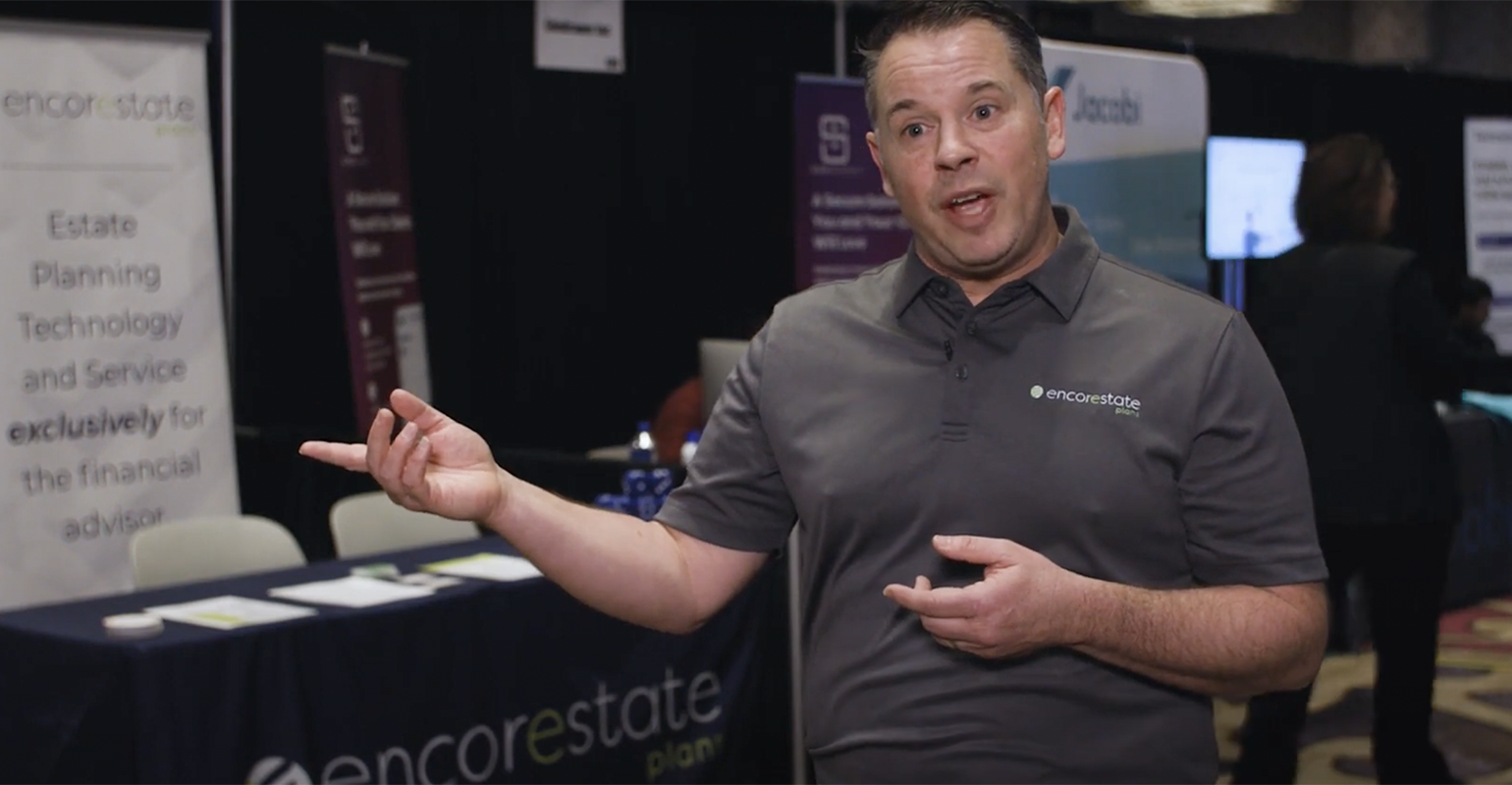Many fintech companies pay attention to the value of the human touch while actively working to eliminate as much as possible.
But this is the gap EncorEstate plans is looking to complement through its service and support of advisors who offer estate planning first and the use of human experts on the back end.
“We consider ourselves 75% technology and 25% service,” said EncorEstate CEO Matt Morris. “Many advisors are new to estate planning, and we want to give them the support they need to get comfortable.”
Morris and CTO Matt Pistone both played key roles in building Nitrogen (formerly Riskalyze; Pistone co-founded the company.) A different fintech, however, Holistiplan, inspired what they want EncorEstate to be in terms of service, support and emphasis on client satisfaction in the estate planning space. “Advisor satisfaction is our metric of success,” Morris said. To achieve this goal, they decided that at certain stages, especially in revision, you need reliable human involvement.
“To make a high-quality service component, total automation has problems,” Morris said. “You can have the best templates and document submissions, but at the end of the day, you can't control what data the customer enters, and bad data in it means bad data. Otherwise, Legal Zoom would have fixed the estate planning problem 25 years ago.”
EncorEstate, like many in this space, works from a questionnaire. The advisor fills it out with an individual client and scans in existing documents, and then the software pulls out the necessary model documents.
Where EncorEstate differentiates itself is that documents are reviewed by estate planning experts on the back end. The experts (many, but not all, of whom are lawyers) go through a 60-point checklist before approving the final document. Specifically, this review is done less from a legal point of view and more to clarify the client's decisions and ensure that everything will work as completed.
Along with the documents, the advisor also gets a visual overview of the plan to share with the client and a personalized “cheat sheet” for their use, presenting some basic explanations of the current plan and some questions the advisor can raise with the client about make sure everything is correct.
“Others use artificial intelligence,” Morris said, “we use humans to review these documents and capture information to populate our one-pagers and summaries.”
According to Morris, the average document processing time is about five days – much slower than many competitors who can generate final documents in minutes. However, Morris claims this delay is not an issue. “Very rarely do you come across an estate plan where there's a material difference between creating it in a minute or a week,” he said. For situations where time is of the essence, the advisor can mark their documents as urgent (for an additional fee) and guarantee a 24-hour turnaround.
EncorEstate charges on an a la carte basis, with prices ranging from $150 to simply get a one-page summary of a client's pre-existing plan to $550 for a trust and related services.
“Advisors sometimes feel subscribed to death,” Morris said. “Especially in a new category where they might want to dip their toes in before jumping in.” He's quick to point out that the service is high-quality regardless of the volume of documents you're generating—though heavy users will naturally get some attention and benefits that may not be a one-off.
They also specifically offer deed services, where they will file the proper property deeds to ensure that the client's trust is properly funded (price varies by state).
Account creation is free, although users must go through some mandatory training before being allowed to use the platform.
“Ninety-five percent of the advisors we're working with are either new to estate planning, or it's not their core offering,” Morris said.
There are approximately 2,500 advisors on the platform, and they have generated just over 10,000 total estate plans, which, according to T3 research, places them among the industry leaders.
That said, EncorEstate isn't for everyone — by its own admission. Morris estimates that 75% to 80% of advisors' books of business should work well with EncorEstates, but they actively disqualify any assets that approach estate tax or present any elements that are complex and ripe for contestation—these are the measure of estate planning lawyers.
“Simple properties are what we do,” Morris said. “We're not afraid to say 'when in doubt, refer it.'
Although many have not heard of EncorEstate, compared to the more high-profile platforms in the estate technology space, this is mainly because it does not have any major integrations and is not doing any funding rounds (a conscious choice made after burning out in the venture capital world while at Riskalyze). Like Riskalyze, however, they have targeted smaller individual firms to serve and grow a loyal user base.
“We're stuck, growing by word of mouth,” Morris said.



